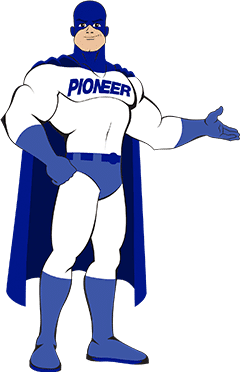Hard water is a common problem among homeowners in Shreveport, Louisiana. It can be difficult to recognize the signs that you have this issue at your home.
At Pioneer Comfort Systems, our HVAC pros understand the critical role water quality plays in your HVAC system’s performance and overall comfort.
Here, we will explore the differences between hard and soft water, their impact on your home, as well as the solutions our HVAC experts offer to ensure your HVAC equipment operates at its best.
What is hard water?
Hard water is water that contains a high concentration of dissolved minerals. These minerals primarily consist of calcium and magnesium ions. Minerals are picked up as water percolates through rocks and soil, so their presence in the water makes it “hard.”
The hardness of water is typically measured in grains per gallon (GPG) or parts per million (PPM).
Hard water can cause rust and premature wear on HVAC equipment, leading to costly repairs and replacements.
What is soft water?
Soft water is water that has been treated to remove minerals that may cause hardness. Again, this refers to primarily calcium and magnesium ions.
Water softening involves replacing these minerals with sodium ions through an ion exchange process or employing other methods like reverse osmosis or lime softening.
Soft water is beneficial for plumbing systems and water-using appliances. Why? Soft water helps prevent the buildup of mineral deposits or scale in pipes, fixtures, and appliances like water heaters and washing machines.
The lack of major minerals ensures optimal water flow and heat transfer. This enables the HVAC system to operate at peak efficiency.
As a result, the HVAC system consumes less energy to achieve the desired heating or cooling effect, leading to potential cost savings on utility bills. Additionally, by reducing scaling and corrosion, soft water can significantly extend the lifespan of HVAC equipment, reducing the need for frequent repairs and water heater replacements.
Overall, using soft water in HVAC systems is a wise investment that enhances system efficiency, reduces maintenance costs, and contributes to a more comfortable and energy-efficient home or building.
It’s important to add that it’s essential to balance the benefits of soft water with potential considerations, such as the added sodium content in the treated water, which may be a concern for individuals on low-sodium diets.
Effects of Hard Water on HVAC Systems
The effects of hard water on HVAC systems can be costly.
Hard water contains high levels of minerals, which can lead to scale buildup in the HVAC system’s pipes, heat exchangers, and other components. This accumulation eventually restricts water flow and affects the heat transfer process. This, in turn, reduces the system’s efficiency and performance.
Scaling can also lead to clogs and blockages, causing increased wear and tear on your home’s HVAC equipment.
Scaling in Pipes and Heat Exchangers
Hard water causes scaling in pipes and heat exchangers due to its high mineral content. This is primarily due to calcium and magnesium ions.
As hard water flows through the pipes and heat exchangers, the minerals are deposited on the system’s inner surfaces, forming a layer of scale.
Over time, the scale buildup becomes thicker. This restricts water flow and hinders heat transfer.
The scaling acts as a barrier, making it harder for your home’s system to efficiently exchange heat between the water and the surrounding environment.
As a result, your HVAC system has to work harder and consume more energy to achieve the desired effect.
Increased Wear and Tear on HVAC Components
Hard water causes increased wear and tear on HVAC components. Again, this is because of the presence of minerals such as calcium and magnesium.
The increased strain and resistance caused by scale buildup can put additional stress on your HVAC system, leading to more frequent breakdowns, reduced lifespan of the equipment, and the need for costly repairs or replacements.

Importance of Water Quality for HVAC Systems
Water quality is of extreme importance when it comes to the performance and longevity of HVAC systems.
Whether it’s for heating, cooling, or humidification, water is an integral component in several HVAC processes. Poor water quality, especially in regions with hard water like Shreveport, can lead to the accumulation of mineral deposits in pipes, heat exchangers, and other crucial components.
This buildup restricts your home’s water flow and heat transfer, reducing the HVAC system’s efficiency and increasing your energy consumption.
By prioritizing water quality, homeowners and business owners can enjoy enhanced comfort, reduced costs, and a sustainable HVAC system that serves their needs for years to come.
Water Purification & Filtration
Your home’s water should make you feel happy and healthy. However, you may need to have it tested to make sure that it’s not having the exact opposite effect on you and your family. It’s possible that microorganisms and toxins may exist in your tap water and can contribute to allergy symptoms.
Filtering these issue-causing agents from your drinking water with a HALO Whole-Home Water Treatment System will significantly reduce your internal toxic load and may improve your body’s natural ability to deal with allergy symptoms.
Water Solution Experts in Shreveport
At Pioneer Comfort Systems, our Shreveport plumbers offer a variety of solutions designed to improve your plumbing and water condition. We even offer emergency plumbing solutions in Shreveport. Contact us at 318-795-8000.

